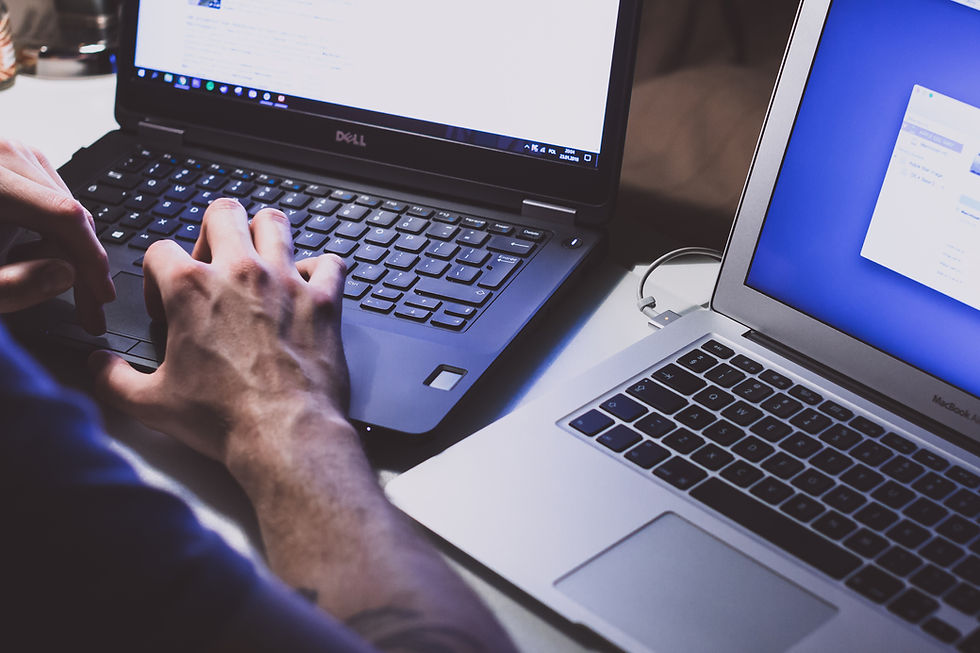How To Detect Copyright Infringement In California
- Dec 26, 2021
- 3 min read
Updated: Dec 26, 2022
An Intro To Copyright Infringement Claims In California
Originality and innovation are critical to a company's success. Not to mention the time, effort, and creativity required to develop new products, designs, or other advancements for your company.
That said, you don't want individuals to copy your ideas and benefit from them. So, in this article, we'll talk about California Copyright Laws and how you can protect your intellectual property.

What Exactly Is Copyrighted Content?
Someone or a business could register as copyrighted content a new product, design, or idea that they came up with. Whoever is listed as the item's copyright holder is the only person who can make money off of it.
What Is Copyright Infringement and How Does It Happen?
In essence, copyright infringement happens when you use one or more of the exclusive rights of a copyright owner. As a result, you risk getting sued if you use someone else's work without their consent.
The copyright owner's exclusive rights are as follows:
Make many copies of their work.
Make derivatives of their original work.
Make more copies of the work.
Displaying copyrighted content.
Make copyright-protected content available for purchase (i.e., merchandise)
Play or perform the material (i.e., audio recordings, songs, movies, etc.)
The vast majority of these regulations exist to protect someone's original work or ideas. These ensure that the only person who can profit from copyrighted work is the copyright owner.
If someone wants to utilize these resources, they must first obtain permission from the copyright owner.
Contact a Copyright Infringement Lawyer in California to learn more about your rights. An attorney may examine your case, analyze it, and advise you on protecting your rights.
What Kind of Proof Is Required To Prove Copyright Infringement?
To prosecute a successful allegation of copyright infringement, the plaintiff must typically demonstrate the following:
That they are the rightful proprietors of the copyright (or have the legal right to sue)
Evidence indicating the defendant plagiarized the original work, either directly or by evidence that demonstrates:
The defendant got access to the original work and generated one that is eerily similar to the copyrighted version.
The defendant's work is extremely similar to the copyrighted work.
The sections of the work that have been copied are protected by copyright (i.e., not merely copying portions from the copyrighted work)
Contact a California Business Lawyer near you for help gathering evidence and going forward with the claims process.
What Are the Benefits of a Winning Copyright Claim?
If the defendant is found guilty of copyright infringement, the copyright owners may be entitled to one of the following:
Financial Losses (also known as "quantifiable damages, like lost profits)
Damages imposed by the law (also known as "intangible losses")
Furthermore, if the plaintiff can establish that the infringement was deliberate, the statutory damages may be greatly raised.
On the other hand, the amount you can recover from a successful claim is determined by the facts of your case, the proof you have, and your California Copyright Infringement Attorney's competency.
Bottom-line
Copyright rules are in place to safeguard people from those who would benefit from someone else's invention. After all, standing out from the competition in your industry might be critical to your company's success.
So, when dealing with dodgy knock-offs or corporate espionage, know when to fight back.
Find A California Business Lawyer in California
1000Attorneys.com is a California Bar Association Certified Lawyer Referral Service that can refer you to a Prescreened California Lawyer best fit to handle your concerns.
You can contact us through our 24/7 Live Chat (or complete our submission form) for a free initial case review.



.webp)